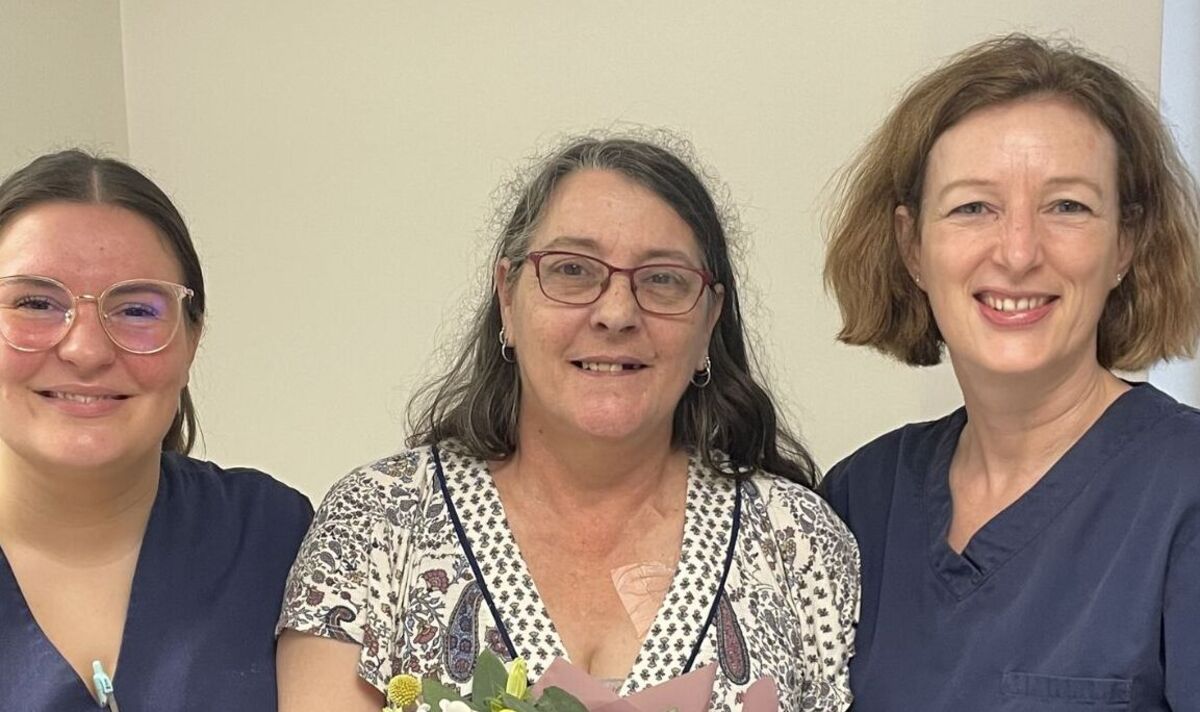Sara Anne Morley first went to her GP in 2014 after experiencing excruciating abdominal pain. She was diagnosed with advanced, stage four bowel cancer and went on to be treated with radiotherapy and chemotherapy.
The 58-year-old had part of her bowel removed and a stoma fitted. But by 2017 her medics exhausted standard treatments and her future looked bleak.
In early 2018 she started a clinical trial at The Christie hospital in Manchester.
Six years on, as she completes her 100th cycle of experimental immunotherapy, her tumours are stable and she is relishing the unexpected, extra years with her two grandchildren.
Married Sara, of Sheffield, South Yorks, said: “All the scans since then have shown that my tumours are steadily shrinking. One has even completely gone, it’s unbelievable.
“If I hadn’t been put on the trial, I wouldn’t be here today. The Christie has given me my life back.
“They’ve given me the chance to get to know my grandchildren, I really can’t thank them enough.”
Sara, whose older brother died from bowel cancer, went to her GP in 2014 after experiencing excruciating abdominal pain and noticing she was going to the toilet a lot more often.
Because of her family history, she was fast-tracked to her local hospital, where she had a colonoscopy and was diagnosed with bowel cancer.
She was treated with radiotherapy and chemotherapy, and also had part of her bowel removed and a stoma fitted.
But she was only on the chemo for five days before she became very unwell and was unable to continue.
As a result of not being able to finish the full course of chemo, doctors kept a close eye on her with regular blood tests.
In 2016, she was told that the cancer had come back and spread to her liver. She tried every type of chemo available to her but yet again was unable to finish a full course of any of them.
Finally with all normal options available to her exhausted, she was referred to The Christie NHS Foundation Trust in April 2017.
Genetic testing revealed she had a specific colon cancer called MSI-H, only seen in five per cent of patients, and matched to a trial of an immunotherapy drug called a monoclonal antibody.
It occurs when mismatch repair (MMR) genes, whose job is to correct errors that happen during cell division, stop functioning properly.
As a result of this shock discovery, she was able to be matched to a specific immunotherapy trial looking at the effectiveness of a type of drug called a monoclonal antibody.
The therapy works by blocking a protein that stops the immune system from working properly and attacking cancer cells. In essence, it trained Sara Anne’s immune system to fight the cancer itself.
Sara is being treated at the National Institute for Health and Care Research (NIHR) Manchester Clinical Research Facility (CRF) at The Christie.
She added: “I ended up being hospitalised twice on standard chemotherapy but have absolutely no side-effects from this treatment at all so my quality of life is much better.”
Professor Fiona Thistlethwaite, Sara’s consultant and clinical director of the NIHR Manchester CRF at The Christie, said: “It’s brilliant to see that Sara Anne is still doing well after so long on such an early phase trial.
“This is becoming a much more common occurrence as, thanks to advances in DNA testing, we’ve now become a lot better at matching patients with treatments that will at least have some benefit for them.
“A personalised approach like this is central to the cancer treatments of the future.”










